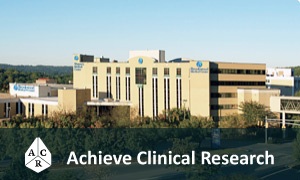Trial of Dextromethorphan in Rett Syndrome
| Status: | Archived |
|---|---|
| Conditions: | Other Indications |
| Therapuetic Areas: | Other |
| Healthy: | No |
| Age Range: | Any |
| Updated: | 7/1/2011 |
Increased brain glutamate and its NMDA receptors found in the brain of younger Rett syndrome
(RTT) patients cause toxic damage to neurons (the brain's nerve cells), and contributing to
EEG spikes. Dextromethorphan (DM) acts by blocking NMDA/glutamate receptors. This study is
being done to determine if DM will prevent the harmful over-stimulation of the neurons
thereby reducing EEG spike activity. Treatment with DM consists of one of 3 different doses
(0.25 mg/kg per day; or 2.5 mg/kg/day; or 5mg/kg/day), and aims to find out which dose if
any will help improve EEG abnormalities, behavior, cognition, and reduce seizures, as well
as improve breathing abnormalities, motor capabilities, bone density, and GI dysfunction.
The study will include 90 females and males with RTT, 2 years-14.99 years of age, with a
mutation in the MECP2 gene, and spikes on EEG, with or without clinical seizures.
Patients meeting eligibility criteria(mutation +ve and having EEG spikes), will be admitted
to the Pediatric Clinical Research Unit at Johns Hopkins Hospital and will have
pharmacokinetics of DM determined to establish that they are rapid metabolizers of the drug.
The baseline studies on initial admission include neurological,
neuropsychology,gastroenterology, DEXAscan, Occupational and Physical therapy evaluations,
Brain stem auditory evoked responses and MisMatch negativity testing,gait
analysis,esophageal manometry and pH probe studies. If the subject is a rapid metabolizer
they will be randomized to one of the three drug doses. They are contacted by telephone,
weekly in the first month, and monthly thereafter. They will be examined by a neurologist at
2 weeks,1 month, and 3 months during the drug trial. At each of these visits they will also
be monitored for changes in CBC, electrolytes, and EKG. At the end of the 6 month drug
trial the patients will be readmitted to Johns Hopkins Hospital when all baseline studies
are repeated. Cost of travel, hospitalization and interim tests are free to participants.
We found this trial at
1
site
Site Overview Achieve has two clinical research sites in Birmingham, AL. Our Birmingham sites are conveniently located...
Click here to add this to my saved trials
